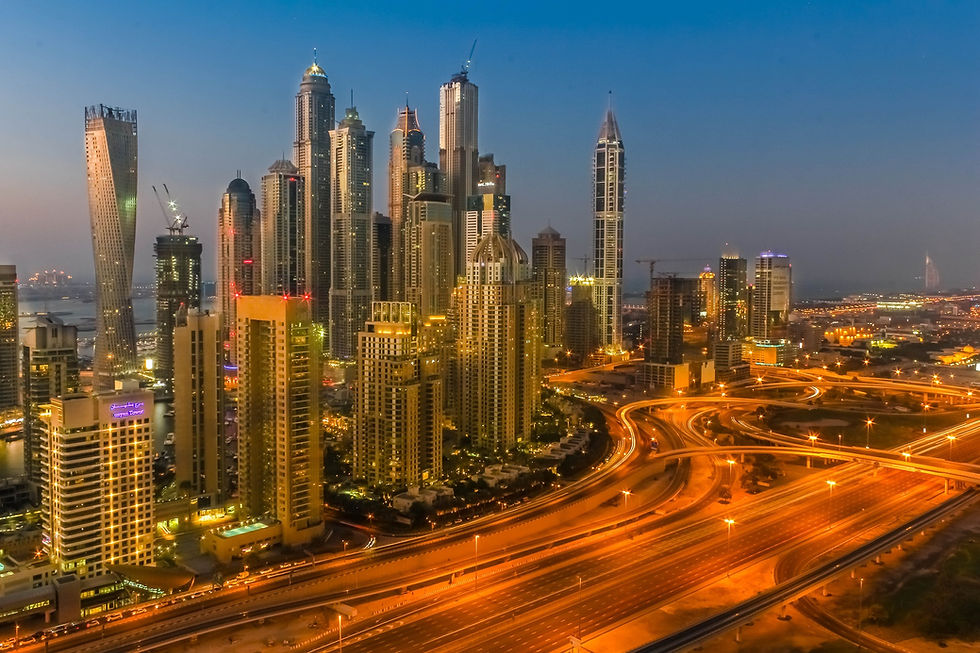Is MENA's Economic Growth Sustainable?
- MECS
- Jul 5, 2018
- 3 min read
Updated: Jul 30, 2018

While 2017 was a challenging year for the MENA region, with GDP growth dropping to 1 percent, Middle Eastern economies are expected to grow this year at an average rate of 2.4 percent. This is due to the rise in oil prices, economic reforms, an improvement in the security situation, higher government spending, and subsidising fiscal consolidation measures.
As the MENA region is predominantly made up of rentier economies, oil revenues greatly support each country’s economy. Certainly, current oil prices of over 80 USD per barrel (up from an average of 54 USD in 2017) have provided a much needed financial boost to the region. It is unclear however how long this price surge will last as US President Donald Trump has called for OPEC members to reduce oil prices and stabilise the market.
Moreover, it is plausible that the surge in oil prices could in fact hinder the region’s economic activities as complacency within MENA’s oil-producing countries could result in a delay of planned economic reforms to diversify their economies.

Saudi Arabia
The Saudi Arabian economy has already increased by 1.2 percent in the first three months of 2018. This growth is expected to continue as Crown Prince Salman announced that 2018 will see an exponential growth in terms of state spending. Here, Salman aims to see gains in his Vision 2030 programme of economic reforms which are centred on expanding the kingdom’s non-oil economy. Here, the lifting of the ban on women driving that took place last month, the development of a semi-autonomous resort on the coast of the Red Sea, and the creation of an entertainment city in Riyadh to rival Las Vegas demonstrate a new era of progressive economic and social reform for Saudi Arabia.
However, that said, unemployment figures for Saudi citizens have hit a record 12.9 percent due, in part, to a rise in tax and domestic fuel prices. Here, austerity policies are negatively impacting private sector employees (including expatriate workers). Foreign workers are currently facing difficulties in the kingdom, with an estimated 165,000 expected to leave Saudi Arabia by the end of 2018. This is due to the country’s annual increase of tax for expatriate dependents and the rise in living costs coupled with the exclusion of foreign workers from state subsidies on water, gas, and electricity.
Iraq
Following a turbulent period, with high levels of insurgency and disputes with the Iraqi Kurdistan Region over a major oil pipeline, the Iraqi economy is set to grow. The official defeat of ISIS (although their presence remains via sleeper cells) has allowed the authorities to steadily begin to repair its damaged infrastructure, including plans to build a new oil pipeline connecting Kirkuk to the south of Iraq. Moreover, Iraq is expected to benefit from a potential slackening of OPEC’s oil production agreement.
In May 2018, Baghdad launched a 35bn USD reconstruction plan for its formerly contested territories with the support of the EU and UN. This signals a new era of increased economic stability for Iraq, a good sign for investors and prospective contractors in the region.
However, the Iraqi parliamentary election that took place in May 2018 threatens Iraq’s financial gains. While populist candidate Muqtada al-Sadr and his political alliance won the vote, widespread allegations of electoral fraud are undermining the country’s political process. This political instability is likely to disrupt the execution of legislation including any new economic reform. Here it is plausible that the new petroleum law that was recently passed to facilitate better relations between the government of Iraq and international companies may be negatively impacted by lingering political disputes.
Conclusion
While the projected GDP growth rate for MENA economies is wholly positive, it is essential (as always in the region) to err on the side of caution. Current Saudi policies under Salman's Vision 2030 are facilitating much needed social and economic reform within the kingdom. However, expatriate workers are facing a mass exodus due to an increase in taxes combined with the rising cost of living. Although Iraq is seeing economic growth and potential for investment due to the official defeat of ISIS, political instability may adversely affect such gains.
To see more content like this, sign up to MECS' newsletter here
Comments